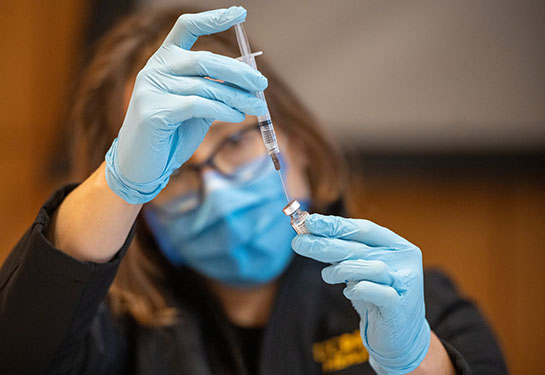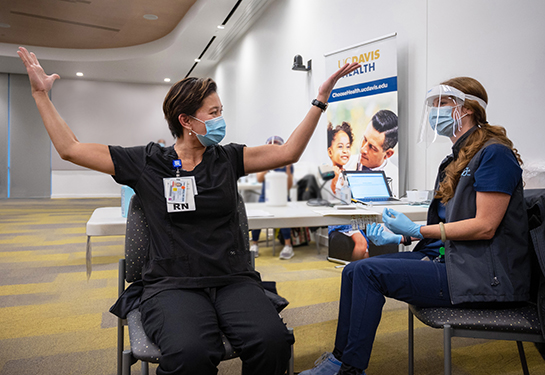Long COVID: What have we learned?
UC Davis Health expert in emerging infectious diseases answers questions about long COVID
It has been more than four years since the COVID-19 pandemic began, yet millions of people continue to suffer long-term effects from the virus. Despite thousands of studies, many clinicians remain unsure of how to evaluate and manage people with long COVID.
Long COVID involves the long-term effects of having COVID-19. It occurs when someone still has coronavirus symptoms or develops new symptoms three months or longer after their initial infection.
To better understand long COVID, UC Davis Health critical care and emerging infectious diseases expert Christian Sandrock answered questions about the condition.
What have we learned about long COVID in the last few years?
The main thing we have learned is long COVID progresses slowly, improving at a glacial pace.
The cause of this disease appears to be related to an imbalance in serotonin levels due to the ongoing replication of COVID-19 virus in the gastrointestinal tract. This drives the neurocognitive symptoms (i.e., brain fog, memory loss or mood changes), and the binding to ACE receptors (a protein on the surface of many cells) causes much of the other cardiovascular symptoms.
Most importantly, we have learned that both vaccination and treatment with Paxlovid reduces the likelihood of long COVID.
What are the most common symptoms of long COVID?
They include:
- Fatigue
- Headache
- Brain fog
- Depression
- Poor sleep
- Shortness of breath
- Chest pain
How does long COVID affect the body?
We don’t know the full effects, but there are some clear issues with lower serotonin, increased coagulability (blood clots) and generally increased inflammation. These issues affect a person’s neurologic system, most notably the autonomic system — a component of the peripheral nervous system — that regulates blood pressure, heart rate and some blood flow.
How long can long COVID last?
Unfortunately, we still do not know. We have people affected early during the COVID-19 pandemic and they still have symptoms. Based on other viral illnesses, it appears long COVID will last for a lifetime in some cases.
Most importantly, we have learned that both vaccination and treatment with Paxlovid reduces the likelihood of long COVID.” —Christian Sandrock
What are the risk factors for long COVID?
Risk factors that we know of include:
- Not being vaccinated against COVID-19
- Being infected by the alpha or delta COVID-19 variants
- Having a case of mild to moderate COVID-19
- Prior history of depression or PTSD
What treatment is available for long COVID?
There is no specific treatment available. We focus on a team-based multifactorial approach with physical and occupational therapy, sleep medicine, exercise and, in some cases, treatment with a SSRI or beta blocker.
How concerned should I be about long COVID?
This is a real disease, and you should take it seriously. But early treatment and starting a multi-team treatment plan will improve recovery.
Also, try to avoid getting COVID-19. But if you do, vaccination and early antiviral therapy (Paxlovid) have been linked to a lower likelihood of getting of long COVID.




